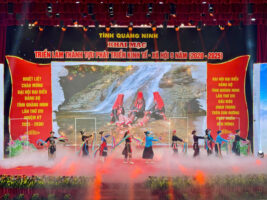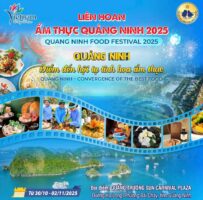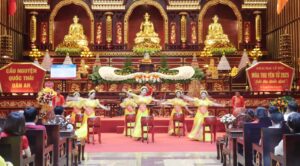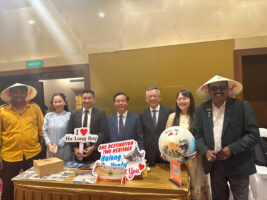On 12nd July, in the framework of the 47th meeting of United Nations Educational Scientific and Cultural Organization taking place on 6th to 16th July, 2025 in Paris, Mr. Nikolay Nenov (Bulgaria) – the Chairman of the conference hammered to recognize Yen Tu – Vinh Nghiem – Con Son, Kiep Bac relic and monument Complex (located in the provinces of Quang Ninh, Bac Ninh, and the city of Hai Phong) as the World Cultural Heritage. This is the 9th World Heritage site in Vietnam recognized by UNESCO, and the second trans-provincial World Heritage site in the country, alongside the Ha Long Bay – Cat Ba Archipelago World Heritage site (located in Quang Ninh Province and Hai Phong City).
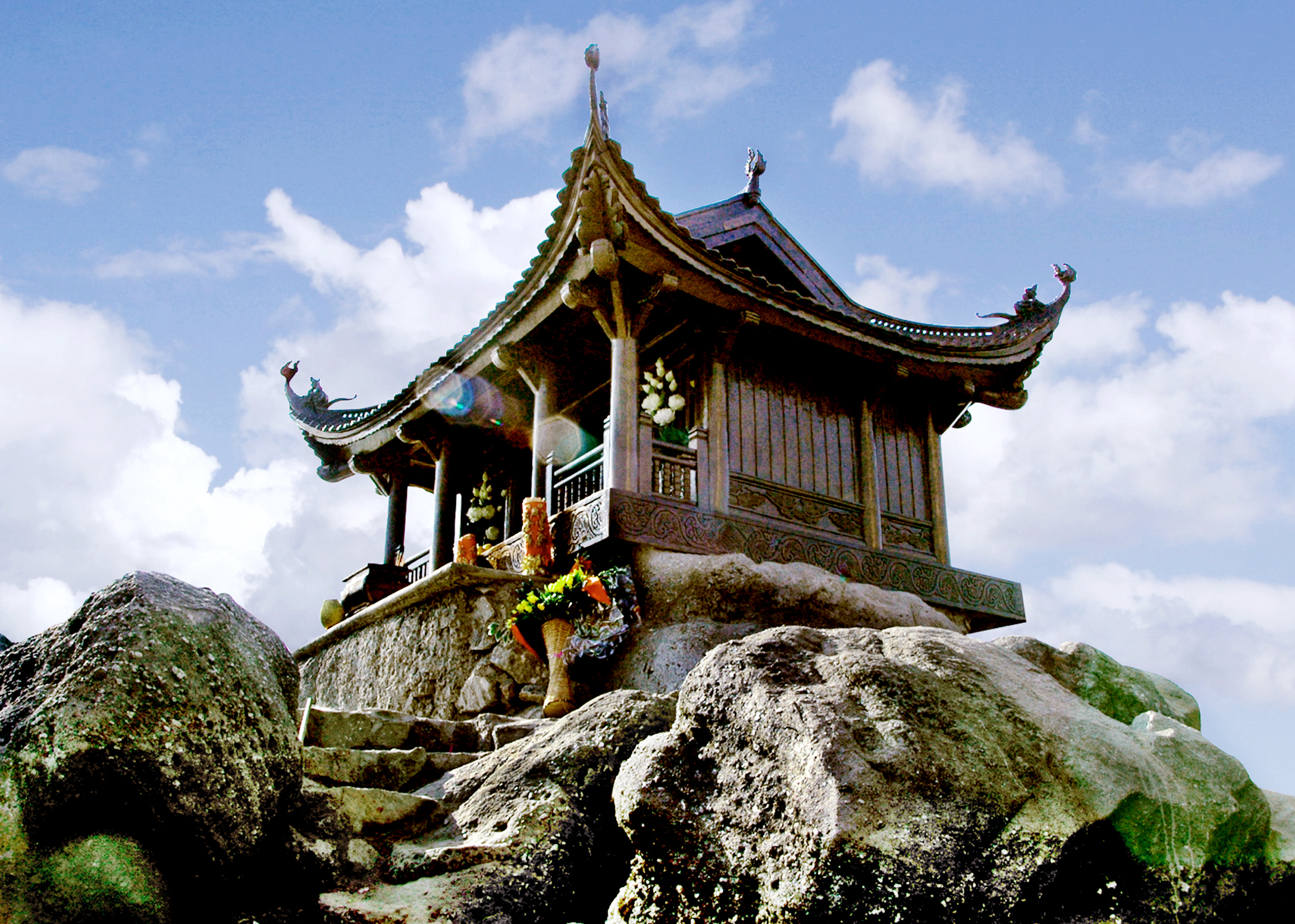
The Yen Tu – Vinh Nghiem – Con Son, Kiep Bac relic and monument Complex was founded in the 13rd century by Tran Dynasty’s Kings, with the vital role of Buddha-Emperor Tran Nhan Tong. With Truc Lam Buddha is the core, which created a lot of exceptional and sustainable values and contributions for cultural and mental heritage of the world.
Through temples, hermitages, pilgrimage routes, stone steles, woodblocks, and carefully preserved relics distributed across a vast area from Yen Tu to Vinh Nghiem and Con Son – Kiep Bac, the heritage fully reflects the development stages of Trúc Lâm Buddhism: from its founding and institutionalization to its revival and continued spread of creative and humanistic values. These heritage sites, formed centuries ago, consistently demonstrate a sense of continuity and growth, serving as major centers of religion and spiritual culture, and welcoming millions of pilgrims each year.
The significant event was truly a proof of the close combination between authority, religion and people to form Vietnam’s national characteristic; along with a sacred and spectacular landscape and an ethnic system based on a deep love for peace, self-cultivation, compassion, kindness, and the harmony between humans and nature.
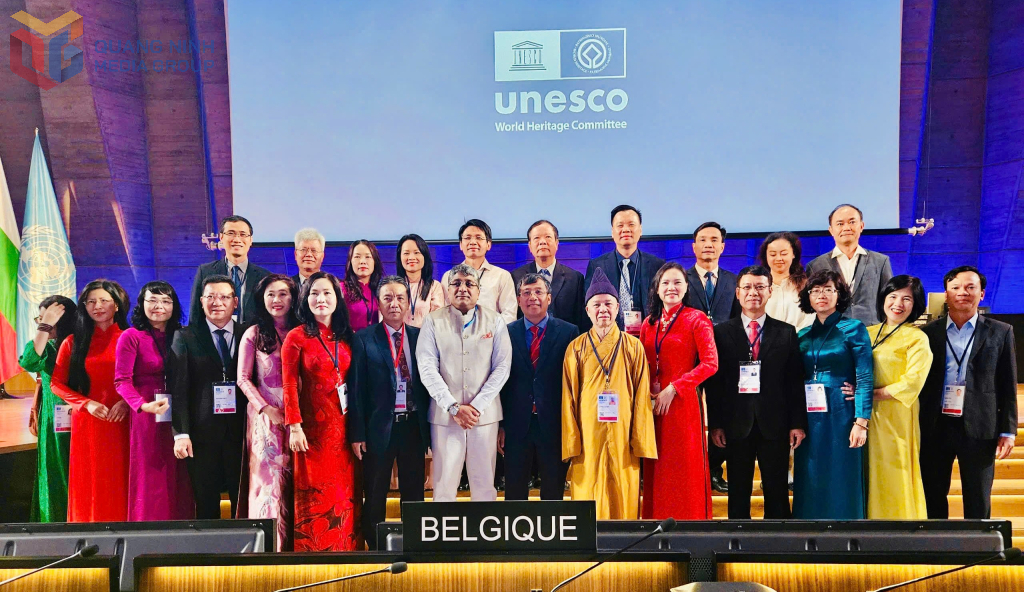
The relic and monument Complex includes a chain of special national relics, which was acknowledged by the Prime Minister. They were the complex of relics and scenic landscapes including Yen Tu Monuments and Landscapes, the Tran Dynasty Historical Site in Dong Trieu, Vinh Nghiem Pagoda, Bo Da Pagoda, the Con Son – Kiep Bac Historical and Cultural Site, the An Phu – Kinh Chu – Nham Duong historical and scenic complex, other relics classified by the Ministry of Culture, Sports and Tourism (such as Thanh Mai Pagoda), as well as artifacts, antiquities, national treasures, intangible cultural heritage, and traditional festivals in the area—together with the natural landscape and cultural space of the Yen Tu – Vinh Nghiem – Con Son, Kiep Bac region—will be preserved, protected sustainably and promoted in accordance with the Law on Cultural Heritage and the 1972 UNESCO Convention Concerning the Protection of the World Cultural and Natural Heritage.
The success of Yen Tu – Vinh Nghiem – Con Son, Kiep Bac relic and monument Complex listed in the world heritage of UNESCO is an outcome of a persistent effort, strong consensus, and close, effective coordination among various levels of government, sectors, localities, as well as domestic and international organizations.
For which the high determination of Quang Ninh, Hai Phong, Bac Ninh, especially a leading role of Quang Ninh Provincial People’s Committee in the heritage’s research and record-formed process made the remarkable result. It is the consequence of the active coordination among the three localities and central agencies such as the Ministry of Culture, Sports and Tourism, the Ministry of Foreign Affairs, the National Cultural Heritage Council, along with the in-depth professional contributions of scientists and experts from both within and outside the country, the Vietnam World Heritage Committee, the Vietnam Buddhist Sangha, as well as the practical support from media agencies and businesses.
Quang Ninh Center of Culture, Information & Tourism Promotion





